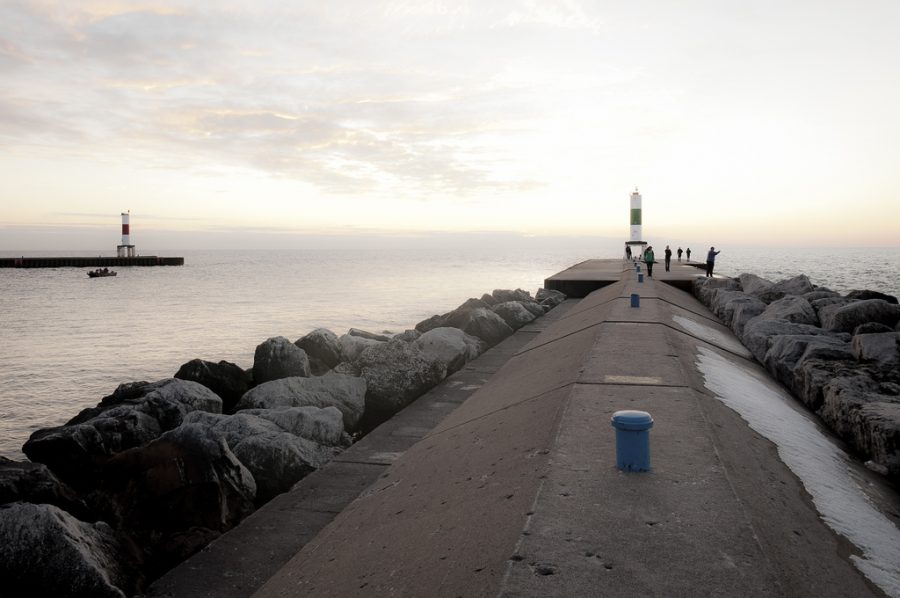On the evening of Saturday, June 10, sirens wailed as medics, police, fire rescue personnel, and DNR workers rushed to the beach. A crowd soon formed as the EMT and AMR units attempted to resuscitate a young man, later identified as 27 year old Afghani immigrant Ghulam Yahya. The crowd stood in awe and horror as Yahya stayed unconscious. People feared that he may never revive. Others pushed the crowd back in an effort to clear a path for the first responders and other personnel to come and help. Gasps and murmurs of “Pray for him,” ”Oh God, I hope he’s ok,” and “C’mon, you can do it” swam throughout the onlookers as the medics continued their attempts to revive the young man. Yahya was then rushed to the hospital and, later that evening, pronounced dead.
Although Yahya may have not been an experienced swimmer, many West Michigan kids believe that they are invulnerable because they swim fine in the lakes. But, being a strong swimmer does not always help in a dangerous situation.
Learning to swim is something that most children growing up in West Michigan go through. Along with that, kids learn about the danger of rip currents. When waves crash up against the shore, one way that they return to the lake is to form a rip current, which means that the water quickly recedes and creates a concentrated area of strong flow back out to the lake. When caught in a rip current, swimming against it only increases one’s chances for harm. Instead, try to swim parallel to shore in order to swim out of it. What needs to be stressed to anyone is to swim out of a rip current, not against one.
As of right now, rip currents are the leading cause of water-related deaths in Lake Michigan, which is the deadliest of the Great Lakes, according to recent statistics. The numbers show that there have been “ 82 drownings and 243 rescues of swimmers caught in currents since 2002. Those 325 current-related incidents are more than double the 126 reports – 62 drownings and 64 rescues – in the four other Great Lakes combined.” Those statistics, composed by the Michigan Sea Grant and the National Weather Service, prove that the West Michigan area swimmers are at a higher risk of danger than most.
Often, rip currents get confused with undertow. These two phenomena are related, but have their own distinctive characteristics. Undertow pulls swimmers under the water, while rip currents just carry people and push them back out to the lake. Undertows can be very dangerous because getting dragged under the water can be difficult to escape, even for an experienced swimmer.
Soph. Thomas Dummer had an experience like this that he vividly remembers. During a run to the beach, his cross country teammates and he decided to take a dip. As a member of the dive team as well, Dummer felt particularly comfortable in the water. “While we were in there, we had felt a strong current going along the shore. So, I started a bit to the side of the buoy, hoping the current would pull me to it. However, the current was so strong that it swept me right past they buoy,” Dummer said. Dummer got caught in a rip current and was swept off of his feet. Eventually, Dummer was pulled under by a vicious undertow. His friends worried for his safety. “They said with the waves so big, they were never able to see where I was and didn’t know if I was still above the water or not,” Dummer said. Thankfully, he was close to the shore and was able to escape the undertow and make it back to shore, to the relief of his teammates.“I learned to never underestimate the power of Lake Michigan.”
Almost every West Michigan kid hears about the dangers of jumping off the pier. Parents say things like “Don’t jump off the pier!” and “Be careful if you’re going to the beach today.” Parents have good reason to say these things, because jumping off of the pier is more dangerous than kids believe. Rocks that surround the pier often move due to the waves and the flow of the lake. One bad jump could break an arm, leg, or worse. Also, the water’s temperature can be relatively dangerous to pier jumping. If one’s body isn’t prepared for cold water, jumping in could trigger hypothermic shock, which can cause a person to pass out and drown.
Experts agree that the beach can be dangerous. Be careful, know what to do when a situation arises, and stay safe.







